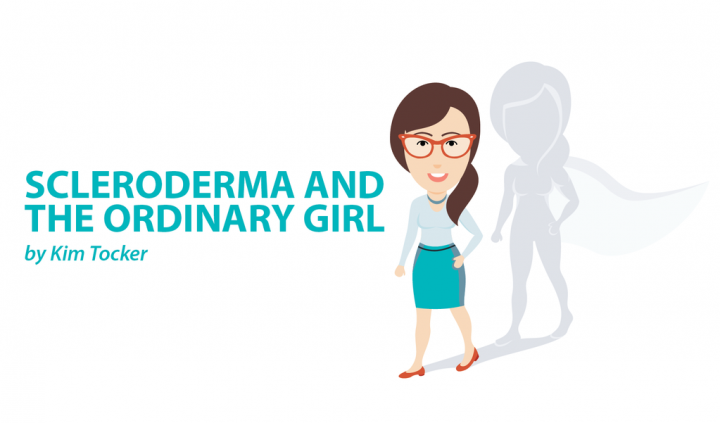How My Teenage Son Copes with a Chronically Sick Mum

As a chronically unwell parent, I am aware of the many complicating issues scleroderma has introduced into our family life. I have been especially worried about our son Jack, who was much younger than our two older (and just as wonderful) boys at the time of my diagnoses. I have often pondered how disadvantaged he was going to be living with all of the challenges a chronically ill mother brings.
However, as our son has grown older, we’ve noticed that the limits my scleroderma entails also offer him opportunities.
Jack loves to spend time doing activities as a family. He has often suggested endeavors involving tasks I simply cannot achieve, usually because of pain and fatigue. Mountain biking through the forest, tramps involving river crossings, and overnight camping are some examples. Each time he suggested we do these things, my husband and I looked at each other in despair and gently explained, “ Mum can’t do that.”
This always made Jack feel sad, but we have noticed a developing change occurring. He now begins by explaining what he would like to do but points out what he knows will be difficult for me and then comes up with a new plan.
It always involves my presence and participation, but also means he is able to experience the new adventures he is seeking. This means he takes into consideration resting places for me, accessible disabled parking, and ways to travel that do not involve long exhausting walks. To achieve this, he has had to develop creative problem-solving skills and a sound understanding of compromise.
The restrictions that being unwell have brought also mean limitations in terms of how often I can attend school functions, sports days, and prize-givings. I’ve had to explain that I always require seating, which is not always possible in a crowded school hall or on the sports field, and that my lungs don’t cope with flights of stairs.
Jack has felt disappointed about this, but has begun to take responsibility in thinking ahead when these events are coming up. He now makes inquiries at school ahead of time. Plans are formulated with his teachers to ensure disabled parking and reserved seating for me, and that the lifts at school are turned on when I attend events. He also makes sure to sit next to me and include me in everything.
He has become a considerate and thoughtful teenager, empathic and kind, with a focus on others’ needs as well as his own. These traits have also been noted by his teachers and peers — no mean feat for a 15-year-old!
One of the biggest issues for our son is his levels of anxiety associated with my disease. He often worried about my prognosis and felt scared about how unwell I could get. As parents, we tried to provide him with information that helped balance the worry. We explained the benefits different medications gave, together with information about my team of specialists and their high expertise levels.
We have noticed that he is now managing his stress levels in a more mature and functional way. He has developed strategies to distract himself when his anxiety is overwhelming, to “try to chill out” as he puts it. He has also learned to soothe himself with helpful self-talk and balances his scary thoughts with reassurances about the expert help provided by my doctors. These skills have become invaluable, and he now uses them in other situations that he finds stressful (particularly during exams or having to present his work to his peers in class — not his favorite thing to do!).
Sure, scleroderma has introduced unfair complications and limitations to family life that Jack has had to endure. However, my scleroderma has also offered him an opportunity to develop a determined resilience and set of important, valuable life skills.
We are immensely proud of him.
***
Note: Scleroderma News is strictly a news and information website about the disease. It does not provide medical advice, diagnosis, or treatment. This content is not intended to be a substitute for professional medical advice, diagnosis, or treatment. Always seek the advice of your physician or other qualified health provider with any questions you may have regarding a medical condition. Never disregard professional medical advice or delay in seeking it because of something you have read on this website. The opinions expressed in this column are not those of Scleroderma News or its parent company, Bionews Services, and are intended to spark discussion about issues pertaining to scleroderma.








Crystal Anderson
MRI contrast is not a dye but a heavy metal that deposits permanently in all tissue, brain and bone. It is causing an epidemic of Scleroderma, Fibromyalgia, Sjoegrens and Lupus. My dental x rays glow showing Gadolinium Deposition in presence of healthy kidneys.